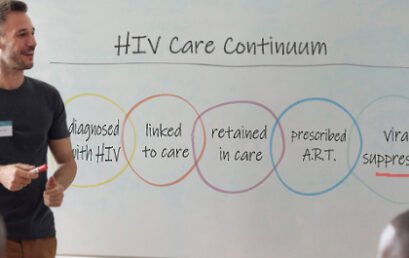Get a free HIV self-test kit through the mail
The getmyHIVtest.com program was created by the Pennsylvania Expanded HIV Testing Initiative at Penn State University and the HIV Prevention and Care Project (HPCP) at the University of Pittsburgh, with support from the Pennsylvania Department of Health. Knowing your HIV status is the first step in preventing the spread of the virus. People who test positive can obtain treatment that keeps the […]
HPCP Capacity Building Trainings
The HIV Prevention and Care Project (HPCP) offers specific capacity-building services and training to HIV prevention and care service providers, including providers housed withing the state’s Department of Health. Trainings offer Nursing CEU credits. Social Work CEUs are in process and will be added soon. For a listing of upcoming trainings, visit our Capacity Building […]
Tribute to Dr. Anthony Silvestre
From Pitt’s Univresity Times: His international advocacy and public health work began at Penn State (1971-76), continued with several Philadelphia organizations (1976-83) and brought him to Pitt in early 1984 until his retirement in 2018. In 1976, he was the founding chairman of the Pennsylvania Governor’s Council on Sexual Minorities, likely the first such state […]
Dr. Anthony Silvestre led the way on Pitt Men’s Study and AIDS Task Force
From the University Times… Anthony “Tony” Silvestre, whose work with the LGBT community was far ahead of its time and made the pioneering Pitt Men’s Study possible, died Sept. 1, 2022 at 75. […] His international advocacy and public health work began at Penn State (1971-76), continued with several Philadelphia organizations (1976-83) and brought him […]
Universities create special HIV testing initiative to provide free HIV self-test kits to PA residents
According to a 2020 CDC report, out of more than 30,000 new cases of HIV infection in the United States, Black and Latinx populations bear the brunt of being most at risk, accounting for two-thirds (20,000) of the new infections. The reason (the CDC also reports) is due to institutionalized health disparities among those groups. […]


